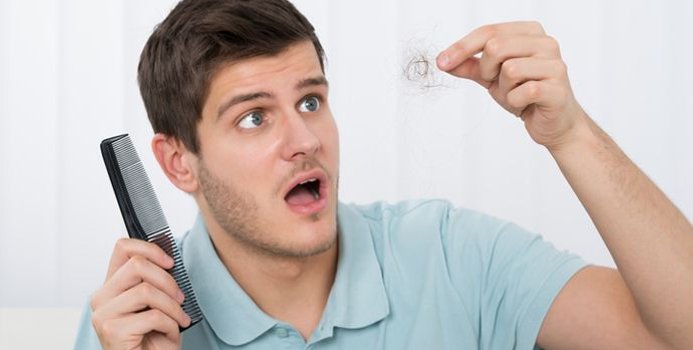Baldness is all too common in the U.S., and is mainly due to hereditary factors. While many people embrace being bald, for others baldness is associated with low self-esteem and self-worth — or even depression. That's why knowing which treatment options are available for hair loss can be beneficial.
Being Bald is Common
Being bald is a common trait, and baldness occurs among both men and women. The American Hair Loss Association says two-thirds of U.S. men experience some hair loss by age 35, and 85 percent of men suffer from baldness or thinning hair by age 50. Women are also at risk, as the American Hair Loss Association says 40 percent of hair loss suffers in the U.S. are indeed women. Baldness, especially for women, can be detrimental to emotional well-being and self-worth.
What Causes Balding and Hair Loss?
A variety of factors can lead to baldness, but the main cause is simply heredity, notes Mayo Clinic. Hormonal changes like menopause and childbirth, medical conditions, autoimmune disorders, thyroid disorders, scalp infections, stress, malnutrition, drastic weight loss, and medications also can lead to thinning hair. And of course, radiation therapy is a well-known cause of hair loss. Medical conditions aside, most people simply experience baldness because of heredity and the normal process of aging.
Is Balding Reversible?
Some forms of balding and hair loss can be reversible, but hereditary balding generally isn’t (unless you seek medical treatment). Hair loss due to hormonal changes, stress, weight loss, malnutrition, medical conditions or treatments, and medications can often be reversed. Even baldness from radiation therapy generally goes away upon completion of cancer treatment. However scaring alopecia, a condition that occurs when hair follicles are replaced with scar tissue, is usually permanent, says the American Hair Loss Association.
Are Treatment Options Available?
Several hair loss treatment options are available when you’re seeking fuller, more luscious locks. If hair loss is related to an underlying medical condition, seek treatment for the condition itself. For hereditary or aging-related baldness, over-the-counter minoxidil (Rogaine) and prescription medication finasteride (Propecia) can help prevent future hair loss — and may even lead to hair re-growth. Hair restoration and hair transplant surgeries are also options, though infection and scarring may occur. For bald men (or women) who want the look of a newly shaved full head of hair, hair tattooing is an option to consider.
When to Seek Treatment
It’s time to see a doctor if you’re experiencing sudden hair loss without knowing why. This way you can rule out medical conditions, hormonal imbalance, or malnutrition as causes. If balding is due to heredity and older age — and is affecting your mental health (self-worth, self-esteem, depression, etc.) or negatively impacting your life in other ways — check with a hair loss specialist to see if hair restoration treatment, hair loss medications, or hair tattooing are good options for you.
[Image via Getty]



